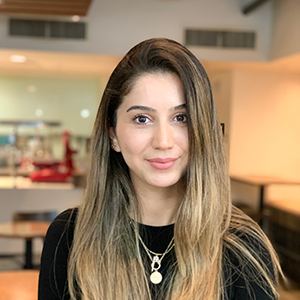 Hometown: Istanbul, Turkey
Hometown: Istanbul, Turkey
Degree earned: Master’s Degree in Applied Linguistics/TESOL
Thesis Excerpt:
THE ROLE OF LANGUAGE USE IN IDENTITY CONSTRUCTION AMONGST LGBTQI+ YOUTUBERS
ABSTRACT
The majority of previous studies of sexual orientation and phonetic variation are based on speakers of North American English. The nature of social scientific theory can be found exclusively on people from western, educated, industrialized, prosperous, and democratic societies (Henrich et al., 2010), which calls for further cross-linguistic examinations. Moreover, studies that examine identity construction through linguistic markers primarily focus on phonetic variation while overlooking other language phenomena such as translingual practices. This study aims to address these two issues in the research as it seeks to expand the diversity of the literature by observing Turkish speakers within the LGBTQ community in Turkey. The study first explores the effect of sexual orientation on speech production and how sexual orientation contributes to identity construction among LGBTQ persons on the video-sharing platform YouTube. Additionally, the study investigates the role of translingual practices between Turkish, English, and Lubunca, the gay slang of Turkey. Using digital ethnography, the first analysis was conducted on the speech production of five gay male youtubers through the data collection of 10 vlogs selected based on popularity and recency. The phonetic variables of the informants, flapping [ɾ], the prolonging of the vowels /o/, /ö/, /a/, /i/ including the hyper-articulation of /yor/, and the aspirated /s/, were acoustically measured using Praat (Boersma & Weenink, 2017). The second investigation explored the same data to analyze translingual practices within the LGBTQ youtuber community in an attempt to discover its relation to self-representation. The findings confirm the existence of salient variables that correlate with sexual orientation. While the use of Lubunca seems to be effective in expressing membership, for visibility and entertainment, the effects of translingual practices between Turkish and English reflect a more westernized and global identity.